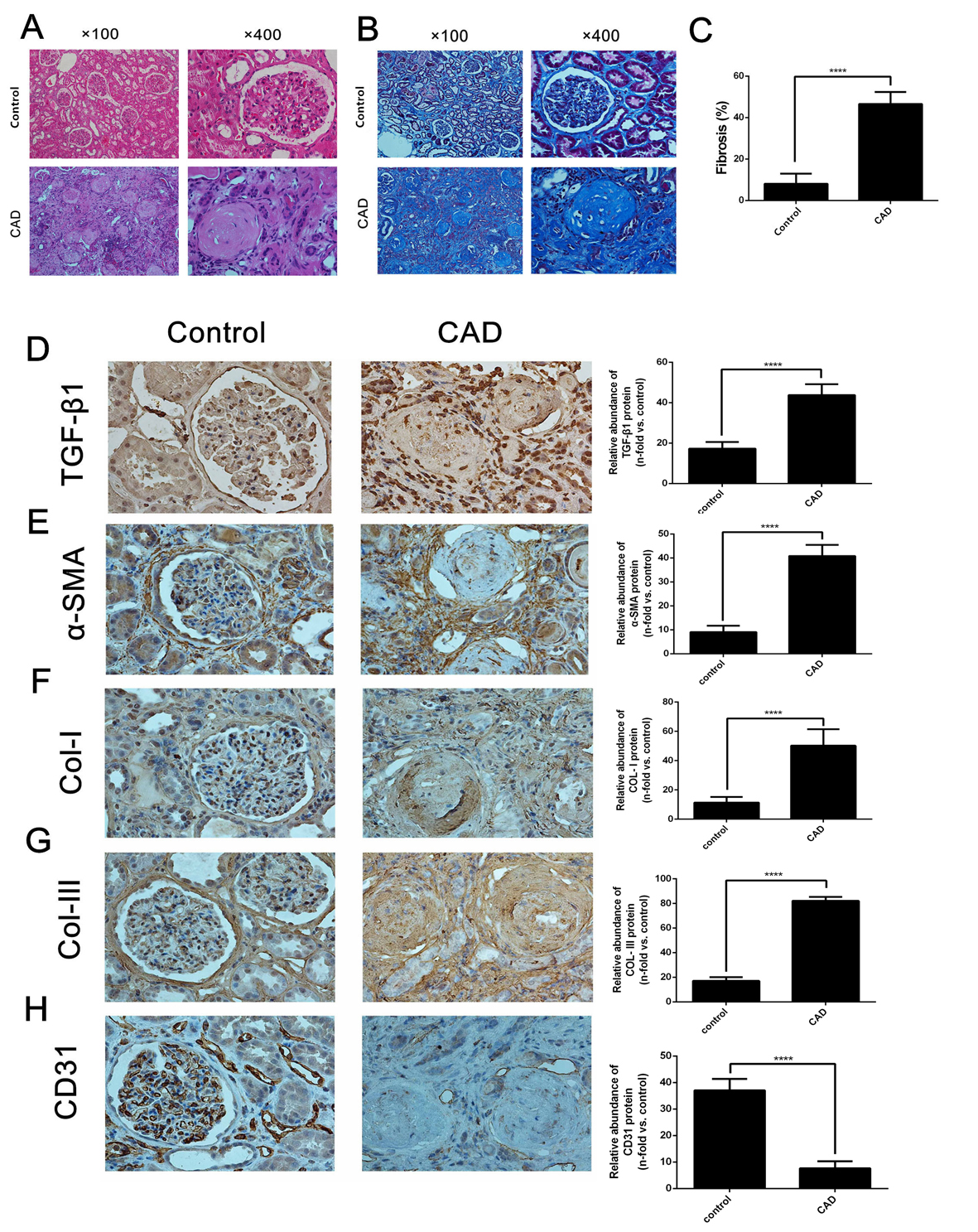TGF-β1 Induces Transplant Kidney Interstitial Fibrosis Through Endothelial-to-Mesenchymal Transition via TGF-β/Smad and Akt/mTOR/p70S6K Pathways.
Urology, The First Affiliated Hospital of Nanjing Medical University, Nanjing, Jiangsu, China
Meeting: 2017 American Transplant Congress
Abstract number: B23
Keywords: Endothelial cells, Fibrosis, Kidney transplantation
Session Information
Session Name: Poster Session B: Acute and Chronic Rejection
Session Type: Poster Session
Date: Sunday, April 30, 2017
Session Time: 6:00pm-7:00pm
 Presentation Time: 6:00pm-7:00pm
Presentation Time: 6:00pm-7:00pm
Location: Hall D1
Background: Chronic allograft dysfunction (CAD) induced by kidney interstitial fibrosis is the main cause of allograft failure in kidney transplantation. Studies suggested that endothelial-to-mesenchymal transition (EndMT) may play an important role in kidney fibrosis. We undertook this study to characterize the functions and potential mechanism of EndMT in transplant kidney interstitial fibrosis.
Methods: The EndMT was assessed by proteins and mRNAs extracted from human umbilical vein endothelial cells (HUVECs) treated with transforming growth factor-beta1 (TGF-β1) at different doses or at different intervals using western blotting, qRT-PCR and ELISA assays. Cell motility and migration were evaluated with motility and migration assays. The mechanism of EndMT induced by TGF-β1 was measured by western blotting. In addition, human kidney tissues from control and CAD group were also assessed by HE, Masson's trichrome, immunohistochemical, indirect immunofluorescence double stainings and western blotting assays.
Results: TGF-β1 significantly promoted the development of the EndMT in a time-dependent and dose-dependent manner and promoted the motility and migration abilities of HUVECs. The TGF-β/Smad and Akt/mTOR/p70S6K signaling pathways were revealed to be associated with the pathogenesis of EndMT induced by TGF-β1, which was also proven in vivo by analysis of the specimens of the control and CAD groups.
Conclusions: The progression of EndMT, characterized as the change in cell morphology and promotion of endothelial cells' motility, migration and extracellular matrix (ECM) secretion, could promote transplant kidney interstitial fibrosis by targeting TGF-β/Smad and Akt/mTOR/p70S6K signaling pathways, hence resulting in development of CAD in kidney transplant recipients.
CITATION INFORMATION: Wang Z, Han Z, Tao J, Tan R, Gu M. TGF-β1 Induces Transplant Kidney Interstitial Fibrosis Through Endothelial-to-Mesenchymal Transition via TGF-β/Smad and Akt/mTOR/p70S6K Pathways. Am J Transplant. 2017;17 (suppl 3).
To cite this abstract in AMA style:
Wang Z, Han Z, Tao J, Tan R, Gu M. TGF-β1 Induces Transplant Kidney Interstitial Fibrosis Through Endothelial-to-Mesenchymal Transition via TGF-β/Smad and Akt/mTOR/p70S6K Pathways. [abstract]. Am J Transplant. 2017; 17 (suppl 3). https://atcmeetingabstracts.com/abstract/tgf-1-induces-transplant-kidney-interstitial-fibrosis-through-endothelial-to-mesenchymal-transition-via-tgf-smad-and-aktmtorp70s6k-pathways/. Accessed February 20, 2026.« Back to 2017 American Transplant Congress

